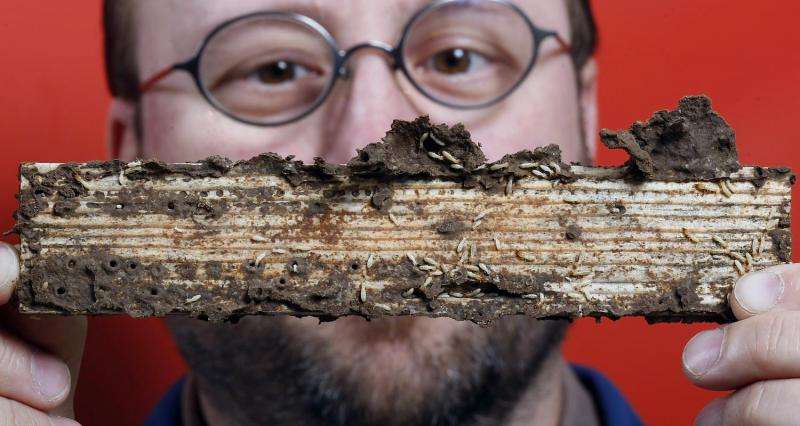Newly developed insecticide and fungus combination could more effectively control, eliminate termites

A new Purdue University-developed technology concept could provide pest control companies with a more effective way to control termites and prevent associated damage. The technology works by targeting the termite's resistance genes that help the insect fight off a known fungus that can effectively eliminate termites.
"Termites damage approximately 600,000 homes in the U.S. each year," said Michael Scharf, an associate professor and the O.W. Rollins/Orkin Chair in Purdue's Department of Entomology, who developed the technology. "Understanding the small, wood-destroying insect's biology and behavior can lead to more effective methods that are specifically targeted at termites to control infestation, prevent damage and potentially decrease the insects' spread."
Scharf said non-specific chemical insecticides are sometimes ineffective, or not preferred by some homeowners, and a method to target the termite's genes to dismantle their defense mechanisms against fungus is needed.
"Termites have all these microbes living in their gut, like humans do. These microbes are able to help fight off a known pathogenic fungus that can infect termites and eliminate them," Scharf said. "Some insecticides and drugs can kill some of the microbes that provide termites with resistance to pathogenic fungus, making termites more vulnerable to fungal pathogens. However, a more effective method is needed to target the termites."
Scharf said the core of the technology is being able to target the termite's resistance genes and make the termites susceptible to the fungus.
"If you try insecticide or fungus by itself, in really low doses, nothing happens," he said. "Although the insecticide has been in use for a long time, it has never been used in combination with the fungus. Through testing we found that once you combine the two together, all the termites were eliminated."
Scharf said the technology is ready for a company to further test and develop the approach.
"We hope to determine other methods to silence the termite's genes that give resistance to the fungus; this could be with RNA interference, drugs or antibiotics," he said. "Doing this will make the fungus more effective without using the insecticide."
Provided by Purdue University


















